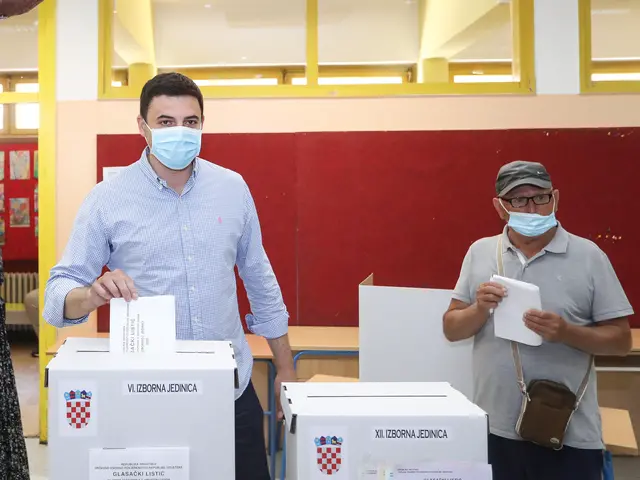The ruling center-right Croatian Democratic Union (HDZ), led by Prime Minister Andrej Plenkovic, won the most seats in the parliamentary elections on Sunday and was expected to form a new government soon.
According to the preliminary results from the State Electoral Commission after counting over 91 percent of the votes, the HDZ won 67 parliament seats. The center-left Restart Coalition led by the Social Democratic Party (SDP) stumbled and garnered 41 seats. The third-strongest party is the recently-formed Homeland Movement, a right-wing party headed by singer Miroslav Skoro, gaining 16 seats.
With 67 seats in the pocket, the HDZ is capable of forming a new government with representatives of ethnic minorities who have bagged eight seats and usually go with the ruling party.
"We have had a difficult mandate full of temptations, and the challenges ahead may be even greater. These challenges require responsibility, experience, and knowledge," Plenkovic said in his victory speech around midnight on Sunday.
Austrian Chancellor Sebastian Kurz has sent a congratulation message to Plenkovic via Twitter, saying that he looks forward to continuing to work with Plenkovic in the European Union and further strengthen bilateral ties.
SDP leader Davor Bernardic earlier said that he was ready to resign due to poor election results.
In 2016 elections, the ruling HDZ won 61 seats, while the SDP coalition was ranked second with 54 seats.
Over 3.8 million voters started casting their ballots at 7 a.m. local time (0500 GMT) on Sunday, which will elect 151 members of parliament for four-year terms.
The elections this year have been seen as the most challenging one in the country's history, as the number of new COVID-19 cases hit a record high this week. Voters are advised to attend poll stations with face masks and their own pens.
By Monday, Croatia has confirmed more than 3,150 COVID-19 cases, with 113 virus-related deaths, according to the Center for Systems Science and Engineering at Johns Hopkins University.
This is the 10th parliamentary elections since the former Yugoslav Republic held its first multi-party elections in 1990. There are 6,999 polling stations in the country and around the world where Croatian citizens can cast their ballots.
 简体中文
简体中文

